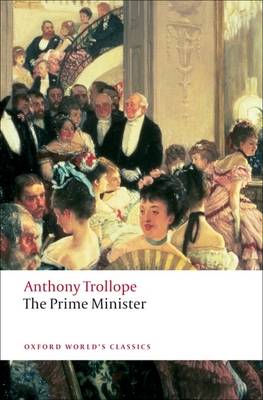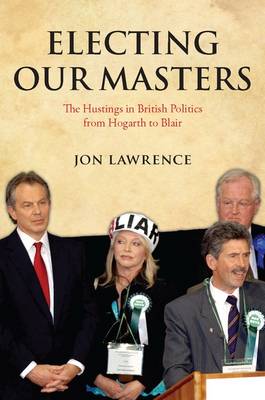By David Ellwood
“The Americanisation of British politics has been striking this conference season,” declared The Economist last autumn. “British politicians and civil servants love freebies to the US ‘to see how they do things,’” reported Simon Jenkins in The Guardian in November. Among the keenest such travellers is Michael Gove, the Education Secretary. Talking to the Daily Telegraph in February 2014, Gove spoke of the entrepreneurial spirit he found in California, and how his contacts with Microsoft and Google were helping him bring the skills of Silicon Valley to Britain. Perhaps Gove simply didn’t know how many UK governments of recent decades have journeyed along the same road, with the same aims. When Chancellor, Gordon Brown was tireless in his efforts to get British business “to rival America’s entrepreneurial dash,” as he told the same Daily Telegraph in December 2003, with speeches, conferences, educational programmes and other gestures, including visits from stars such as Bill Gates and Alan Greenspan.
One of the resources the British governing class most often turns to in its search for a successful, competitve identity for their country is ‘America’. Not American policy or money of course, not even that ‘Special Relationship’ which London clings on to so forlornly. Instead it’s an inspirational version of the United States: a source of models, examples, energies, ideas, standards; an invoked America whose soft power influence and prestige never fade. It is a form of virtual political capital which governments from Thatcher to Cameron feel they can draw on to compensate them for all their frustrations in Europe, their humiliations in the wider world and the intractability of their problems at home.
Overlooked by all the commentators without exception, there has long been an American question in Britain’s identity debate. It has not been put there by artists, experts, army officers, sports personalities or even Rupert Murdoch. It has been imported systematically and with great persistence by the governments of the last thirty years, and with it they have brought a series of possible answers. The underlying purpose has been to solve the identity crisis by way of ceaseless efforts to ‘modernise’ the nation, to renew its democracy but also to raise its ranking in those league tables of world competitiveness which the land of Darwin takes so seriously, and — of course — to distinguish it from everything supposedly going on in the European Union. Where better than America to find inspiration and encouragement for this permanent revolution of change the governing class repeatedly insists on?
A visionary image of the United States was central to Margaret Thatcher’s political revolution of the 1980s. As she told a Joint Session of Congress in 1985: “We are having to recover the spirit of enterprise which you never lost. Many of the policies you are following are the ones we are following.” Employment policy was one of the first examples, with reforms explicitly modelled on Reaganite ideology and experience. Even the wording of legislation was directly copied. Under Thatcher, Blair and Brown, certain public sectors, in particular the school and university systems, were reformed again and again in the hope of hooking them up to the motor of economic growth in the way their equivalents were thought to function in the United States. Since the 1980s, the Home Office has been the most zealous of departments in importing American methods and innovations. Simon Jenkins says: “An American friend of mine spent much of his time showing British officials around New York’s police department after its recent success in cutting crime.” Labour’s recent prime ministers were both enthralled by America’s examples. Gordon Brown proposed that school children should swear allegiance to the Union Jack, that there be a British Fourth of July, and a museum celebrating great documents of British democracy. Blair and Brown were the ones who started introducing American private health care firms into the running of the NHS.
David Cameron has followed the American path laid down by Thatcher, Blair, and Brown with zeal and ambition at least equal to theirs. The Tory foreign policy platform for the 2010 election was written by a Brit sitting in the Heritage Foundation in Washington. Just as the outgoing Labour administration created a British Supreme Court, the incoming coalition has set up a new National Security Council, with a National Security Adviser. In November 2012 the country was called upon to elect its first police commissioners, and there was talk of a single school commissioner. Now the Prime Minister talks of life sentences really meaning life in prison. All of this is based on American precedents. But Cameron’s affiliations in America seem to be deepest in parts of California where even Tony Blair did not reach, in particular the Google Corporation. A featured speaker at Google Zeitgeist conferences, Cameron is said to believe that the internet revolution as configured by Google, “meshes with the modern conservative mission – flattening hierarchies and empowering people…” Across Silicon Valley, Cameron and his strategists see a land where “a dynamic economy meets the family-friendly work-place…where hard-headed businessmen drink fruit smoothies and walk around in recycled trainers,” as an admiring journalist put it.
The evidence of the last 40-odd years suggests that in their failure to invent a generally agreed moral theme or narrative of change for their society, the British governing class clings to the America of their imaginations to fill the void. Not because the creed of Americanism as such, far less American politics as currently displayed, can provide the cohesiveness required but simply because US experience over time appears to show how a uniquely powerful machine of national pride and aspiration, embodied in institutions, rituals, stories, and proclaimed values, can keep a multicultural nation glued together and provide ever-lasting hope of renewal. With its exceptional levels of child poverty, social inequality and numbers of people in jail, the governments of the last 30 years may not have got the Americanised Britain they dreamed of. But this has not discouraged them. After all, Ministers know that their enthusiasms can always count on a far warmer reception across the Atlantic than anywhere else in the world, including in Britain itself.
David Ellwood is Senior Adjunct Professor of European Studies at Johns Hopkins University School of Advanced International Studies, Bologna Center. He is the author of The Shock of America: Europe and the Challenge of the Century. His first major book was Italy 1943-1945: The Politics of Liberation (1985) then came Rebuilding Europe: Western Europe, America and Postwar Reconstruction (1992). The fundamental theme of his research — the function of American power in contemporary European history — has shifted over the years to emphasize cultural power, particularly that of the American cinema industry. He was President of the International Association of Media and History 1999-2004 and a Fellow of the Rothermere America Institute, Oxford, in 2006. Read more from David Ellwood on OUPblog.
Subscribe to the OUPblog via email or RSS.
Subscribe to only current affairs articles on the OUPblog via email or RSS.
Image credit: Supreme Court of the United States. By US Capitol. Public domain via Wikimedia Commons
The post America and the politics of identity in Britain appeared first on OUPblog.





 comments function on his
comments function on his